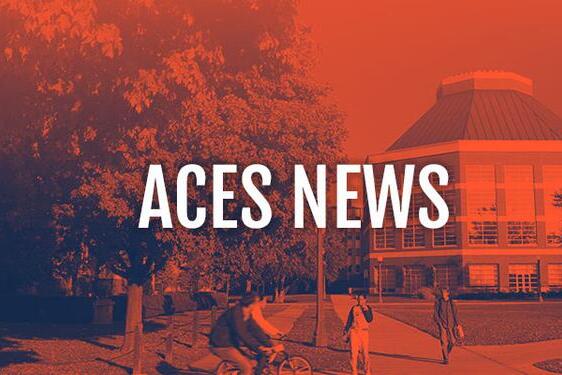ACES participates in commission outlining comprehensive strategy to achieve domestic & global food security

Facing a vast array of food and nutrition security problems in the U.S. and abroad that pose significant humanitarian, environmental, and national security risks, a commission of prominent researchers and leaders from public universities, government, non-governmental organizations, and the private sector this week issued a report outlining a comprehensive strategy to tackle global food security.
Alex Winter-Nelson, director of the College of Agricultural, Consumer and Environmental Sciences (ACES) Office of International Programs, served as Chair of a working group focused on creating enabling environments for access and solutions. Prasanta Kalita, associate dean for academic programs, and Michelle Wander, professor in natural resources and environmental sciences, were members of working groups for supply chains, distribution and loss; and plant and animal performance, respectively.
The effort is known as the Challenge of Change Commission, which the Association of Public and Land-grant Universities convened with support from the W.K. Kellogg Foundation. The 34-member Commission received input from more than 100 individuals from universities, the public and private sector, and non-governmental organizations as it formulated recommended reforms.
“The commission brought together experts on food and nutrition security from a range of disciplines and with interests and experience in both developed and developing countries. While the perspectives were diverse, there was unity around the notion that food and nutrition security must be approached by considering the food system as a whole. The unifying theme of food systems for food and nutritional security enabled participants to come together and generate some compelling ideas about pathways forward and roles that universities can play,” said Winter-Nelson.
While many important efforts are being undertaken to address the vast array of problems that comprise food and nutrition insecurity, a truly comprehensive, holistic approach that fully engages arguably the world’s greatest scientific and educational resource in food and nutrition security – public research universities – has been lacking until now. The Challenge of Change Commission began with the understanding that public research universities – with their broad academic, research, and community expertise and experience – were uniquely positioned to address the complex and diverse challenges of food and nutrition insecurity.
The strategy designed by the Commission includes all aspects of our food systems: production, nutrition, health, food safety and loss, economic costs, individual behaviors, and incentives – as well as societal factors affecting food availability, access and use. The report lays out an approach for stakeholders in government, business, and non-governmental organizations to work together to achieve their shared goal of global food security.
Learn more about the initiative http://www.aplu.org/challengeofchange